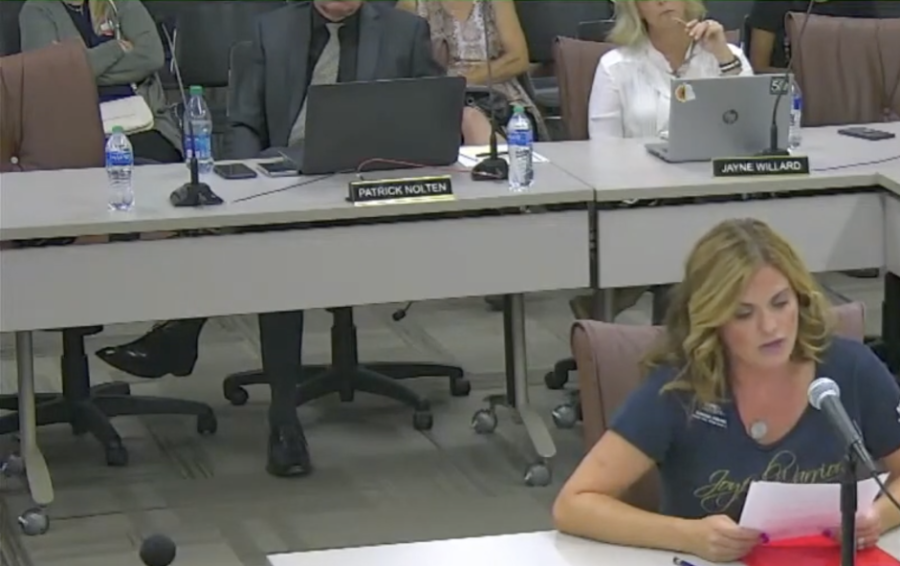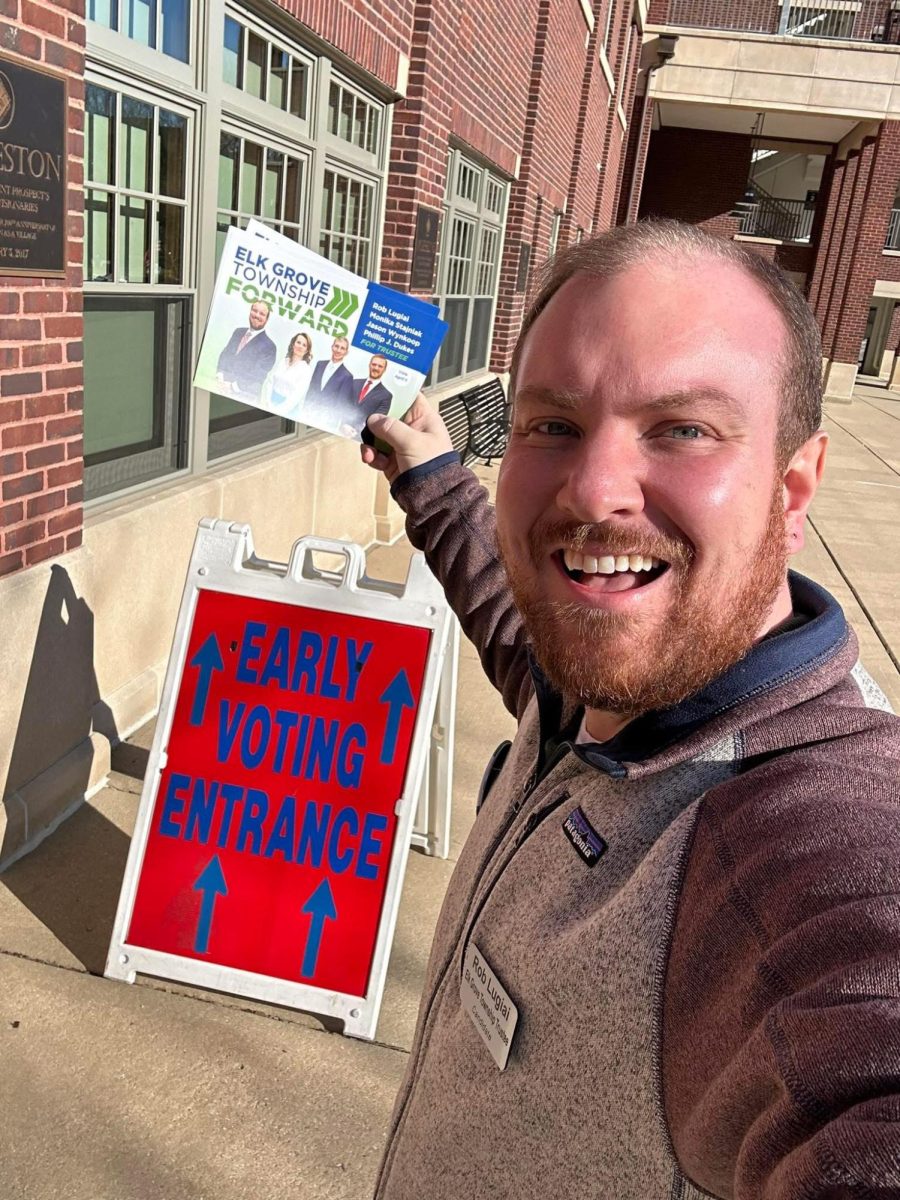Opinion: To save the environment, start with the small things
March 22, 2023
I watch a lot of District 203’s Board of Education meetings. Maybe too many. Although after watching what has to be dozens of meetings, there was one detail I still failed to notice.
The back of the room in which the BOE meets features a massive poster of the district’s “Focus 203” — their plan for the next five years. If you ever were to look at this poster, you’ll notice the first commitment of their strategic focus to “steward resources effectively” reads “identify and create a long term plan to reduce the District’s carbon footprint.”
The plan isn’t what it took me so long to notice, though. No. I looked up to read the poster at one fateful board meeting, and when I looked back down I saw something shocking. A plastic water bottle, one in front of every BOE member and district administrator present.
The pure irony of the group who produces and executes “Focus 203” toting their 17-oz Dasani water bottles while sitting in a U-shape opening towards a poster declaring it the district’s mission to cut emissions and waste is almost unbearable.
Now, this might seem like a pretty small thing to be so angry over, but in the fight to cut a carbon footprint, every small step counts.
Micro-level actions — even if they reduce our emissions by only a fraction of a percent — are hugely important too.
What could a change like that look like?
Well, it could be as simple as just using the reusable lunch trays that our district owns, rather than handing kids plastic plates of pizza that get piled in the garbage just minutes later.
It could be investing in real, usable hand dryers that actually work to clean and dry your hands, rather than the ancient, boxy and defunct behemoths in the bathrooms today. Students could actually use those, and the massive piles of paper towels in bathrooms would subside.
The best part about micro-level environmental actions? They don’t need to cost 203 anything!
Something as simple as marking off space for more student-run gardens like the one I grew up with at Elmwood would make a huge impact. The district could even open up roof space on some of the bigger buildings for staff and students to come and build a garden.
The district could add environmental education to the curriculum from K-12. Even just dedicating five minutes a month to teaching elementary school students how to protect and help the environment would be huge.
None of this is to say we should ignore the big, sweeping changes needed to combat climate change — 203 still needs to allocate resources to converting to renewable energy, improving bus coverage so less students drive, converting to a more local source of lunch food, and improving recycling programs alongside the plethora of other changes we need to make a dent in our emissions.
There are plenty of things that we all can do better, but we just don’t notice because they aren’t major or globally transformative.
I hope whenever 203’s plan to reduce our footprint is drafted, we remember the little things, and look for anywhere and everywhere we can make a change, be it in the lunchroom or on the desk right in front of us at the next board meeting.









BD • Apr 17, 2023 at 9:54 am
Small things help but don’t necessarily produce a large enough effect.
Structurally, the way people live determines more than any small changes can compensate for.
E.g. Someone living in New York City who rides the subway or walks will pollute less than someone in Naperville, who necessarily will have to drive everywhere or live larger, less dense housing.
You can individually, say, recycle, but you can’t control how your garbage is disposed of, which is the process that creates the lion’s share of the pollution caused by your garbage.
On a totally unrelated note, the idea of an *individual* carbon footprint was popularized by BP, an oil company. I wonder what their intention was? Whitewashing responsibility, perhaps?